THE DATA STREAM
Remote Portuguese island to house world’s first ‘digital nomad village’
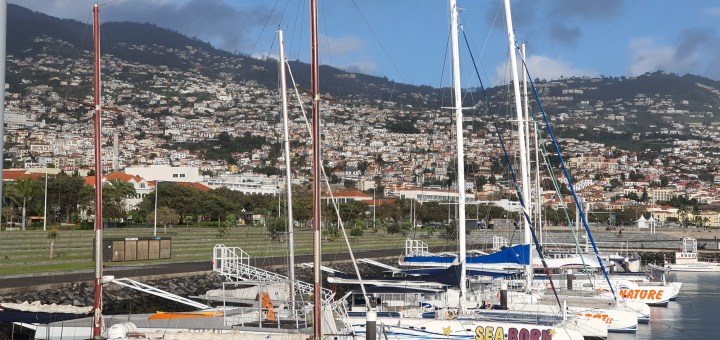
The picturesque coastal settlement of Ponta do Sol on the Atlantic island of Madeira will soon become home to the world’s first official ‘digital nomad village’.
On February 1, Ponta do Sol, a village of 1,800 people on the Portuguese island of Madeira, west of the capital Funchal, will unveil a centre providing Wi-Fi, workspace and accommodation assistance for several hundred remote workers.
Madeira has become a haven for a younger generation of “digital nomads” in search of quality of life, outdoor attractions, great weather and the island’s proximity to Europe – it’s a two- to three-hour flight from most European capitals.
The roads are world class, healthcare is good, fresh fruit and vegetables are in abundance and management of the pandemic leaves most European countries – including the Portuguese mainland – in the shade.
According to MBO Partners, a global consultancy, there are an estimated 41 million digital nomads worldwide based on the definition of those who are location independent, technology enabled, travel and work remotely with the blessing of their employers or are self-employed.
More than seven million are from the US and many are from Europe.
But the intersection of the pandemic and the advance of digital technology has opened the way to an acceleration of digital nomadism and a much wider spectrum of occupations, including lawyers, accountants, tax consultants, marketing agents and those in the fintech space.
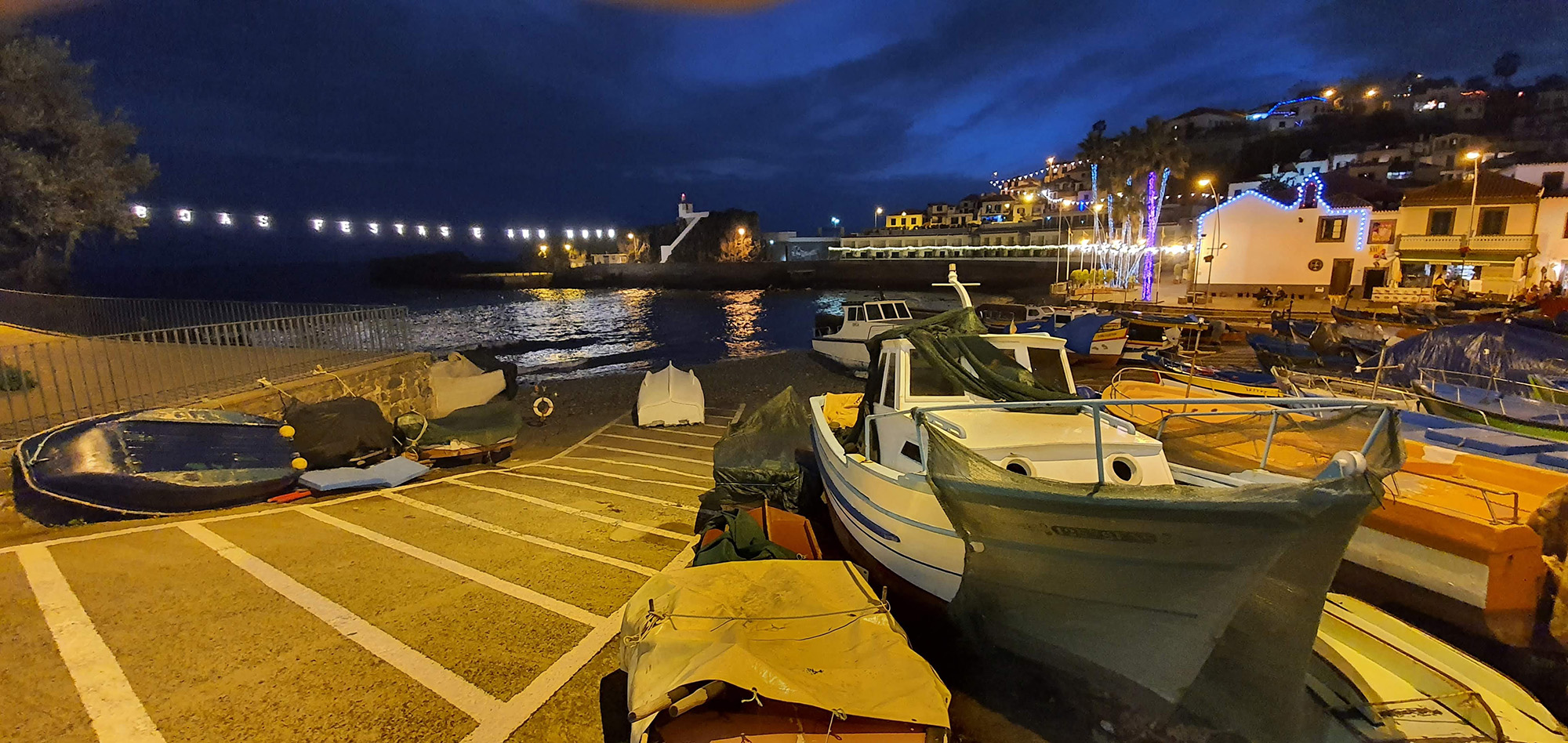
There are an estimated 41 million digital nomads worldwide based on the definition of those who are location independent, technology enabled, travel and work remotely with the blessing of their employers or are self-employed. (Photo: John Battersby)
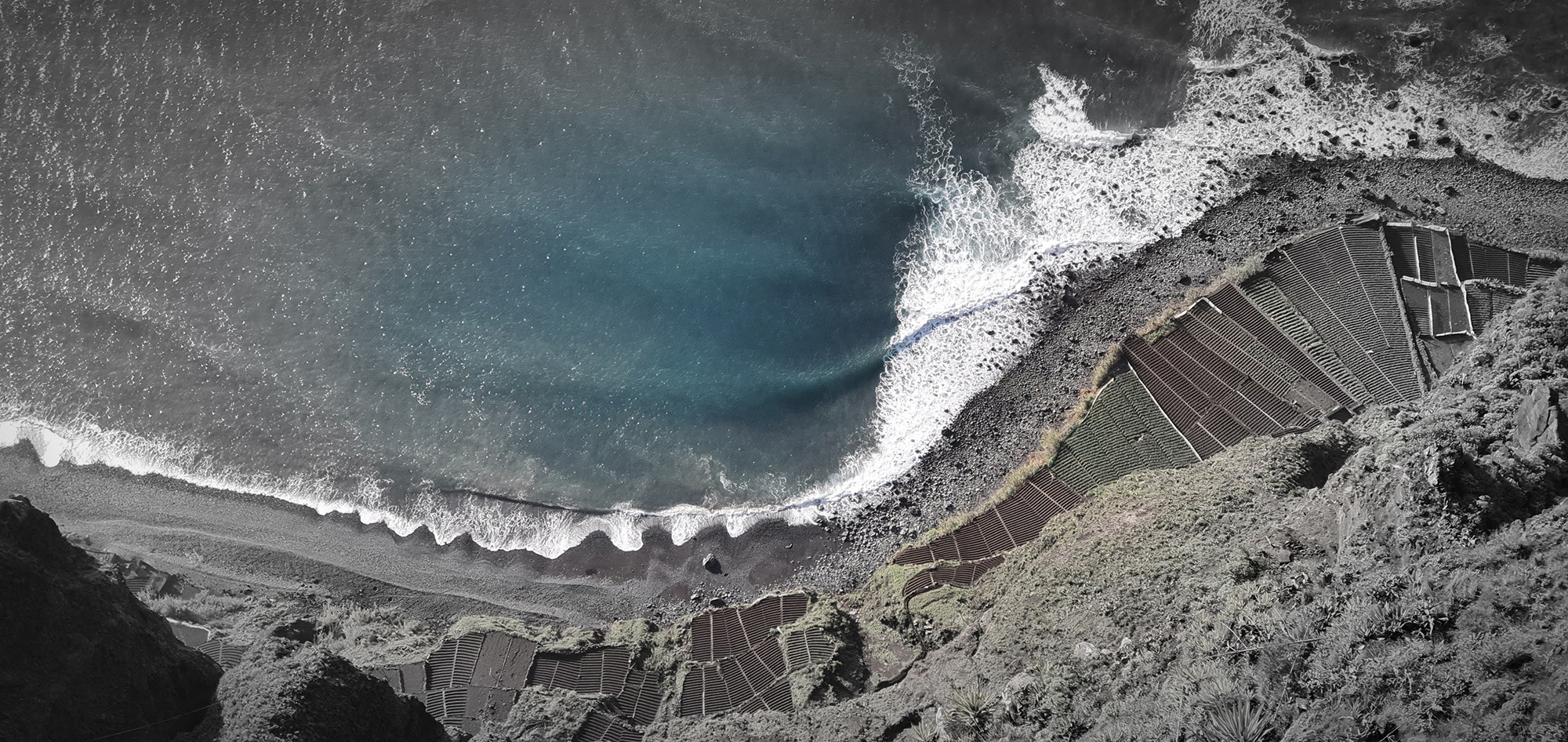
Urban refugees from the isolation of working remotely in a global pandemic, the latter-day nomads have been in search of Covid-light destinations with sunshine, hiking, surfing, diving and fine all-year-round weather. (Photo: John Battersby)
The digital nomad village project is a joint venture between Startup Madeira, a promotion agency to support innovation and boost the island’s tourist-starved economy, and the regional government of Madeira.
It is the brainchild of Lisbon-born digital nomad expert Gonçalo Hall in collaboration with Madeiran Project chief executive Carlos Soares Lopes.
“It is a pilot project which will run from February to June,” said chief executive Lopes.
“If we find the demand is there and the project is a success, the plan is to establish similar hubs in several venues on the island,” said Lopes.
Hall and his partner have travelled the world as digital nomads and have worked in many countries including Germany, Poland, Vietnam and Thailand to name a few.
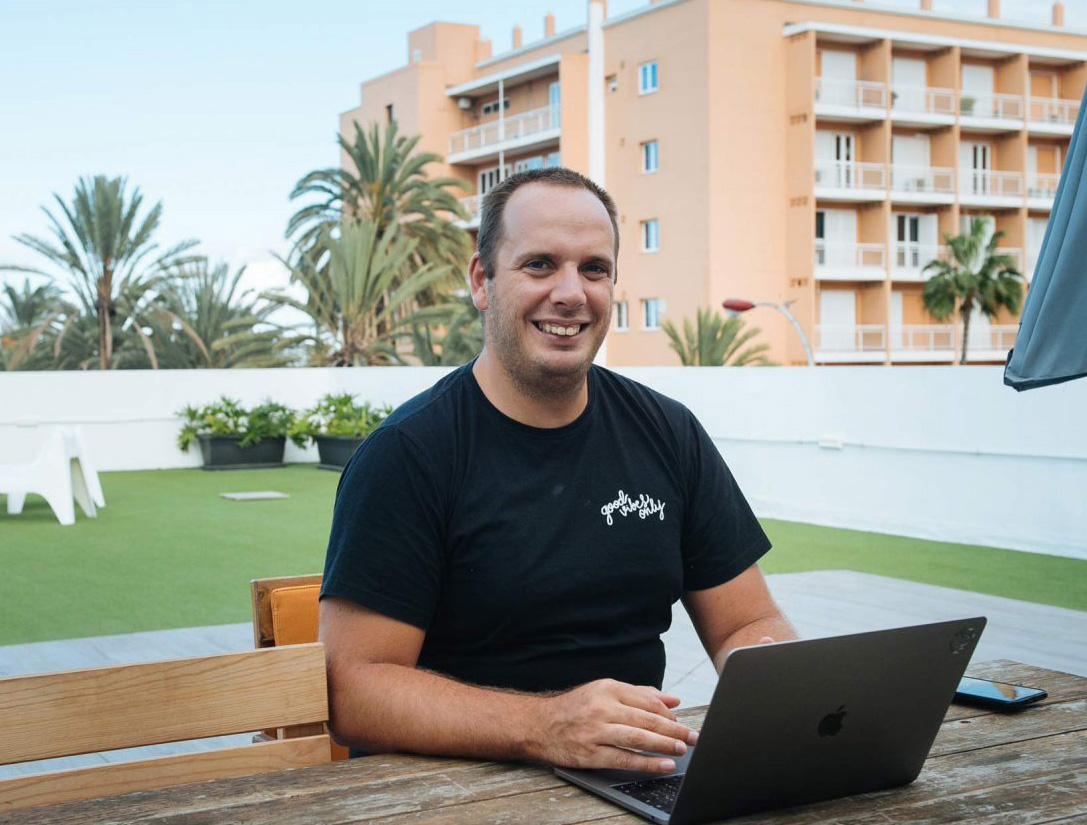
Goncalo Hall ‘ at work’ in Las Palmas . (Photo: John Battersby)
Since launching the project in early December they have had more than 2,000 registrations from people coming to work remotely from Madeira, which is an autonomous region of Portugal.
European Union residents can travel visa-free in the Schengen countries, which include Portugal, but countries outside the EU – including post-Brexit Britain post-Brexit – will be able to remain for only 90 days.
Ponta do Sol is a typical Madeiran seaside village built on precipitous volcanic cliffs with some gravity-defying locations for buildings and banana plantations alike. The village has been extensively upgraded and renovated and has a brand new community centre which will house free workspace for the remote workers.
The village boasts several hotels, a tidal pool partly open to the sea, two beachside restaurants, several hotels and rental accommodation, an elevated cliff-side restaurant and scenic lookout point over the Atlantic Ocean.
A key objective of the project is to integrate the digital nomads into the economic and social life of the town.
“We want to create a real community,” said Hall, “bringing people from all over the world together with Madeirans.”
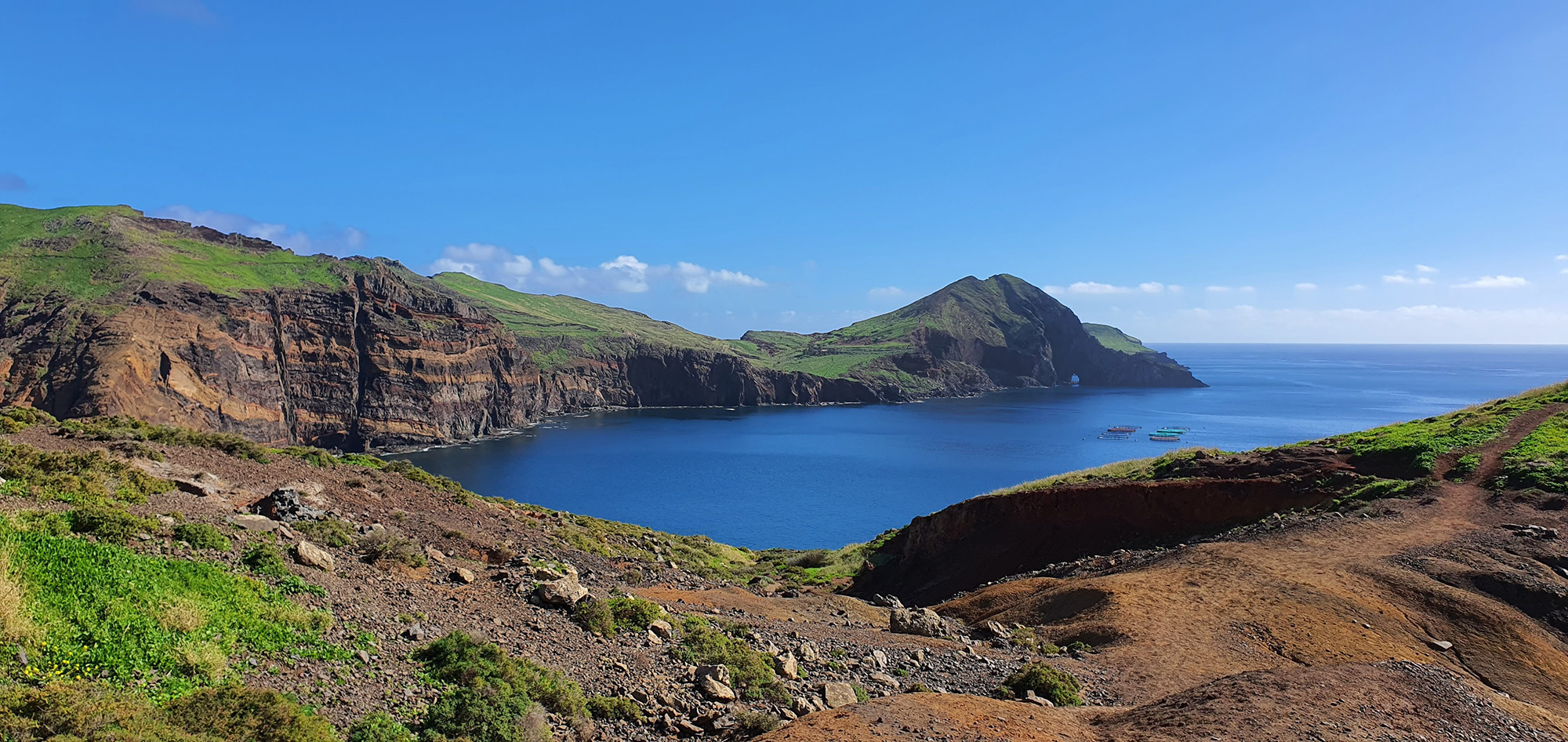
The digital nomad village project is a joint venture between Startup Madeira, a promotion agency to support innovation and boost the island’s tourist-starved economy, and the regional government of Madeira. (Photo: John Battersby)
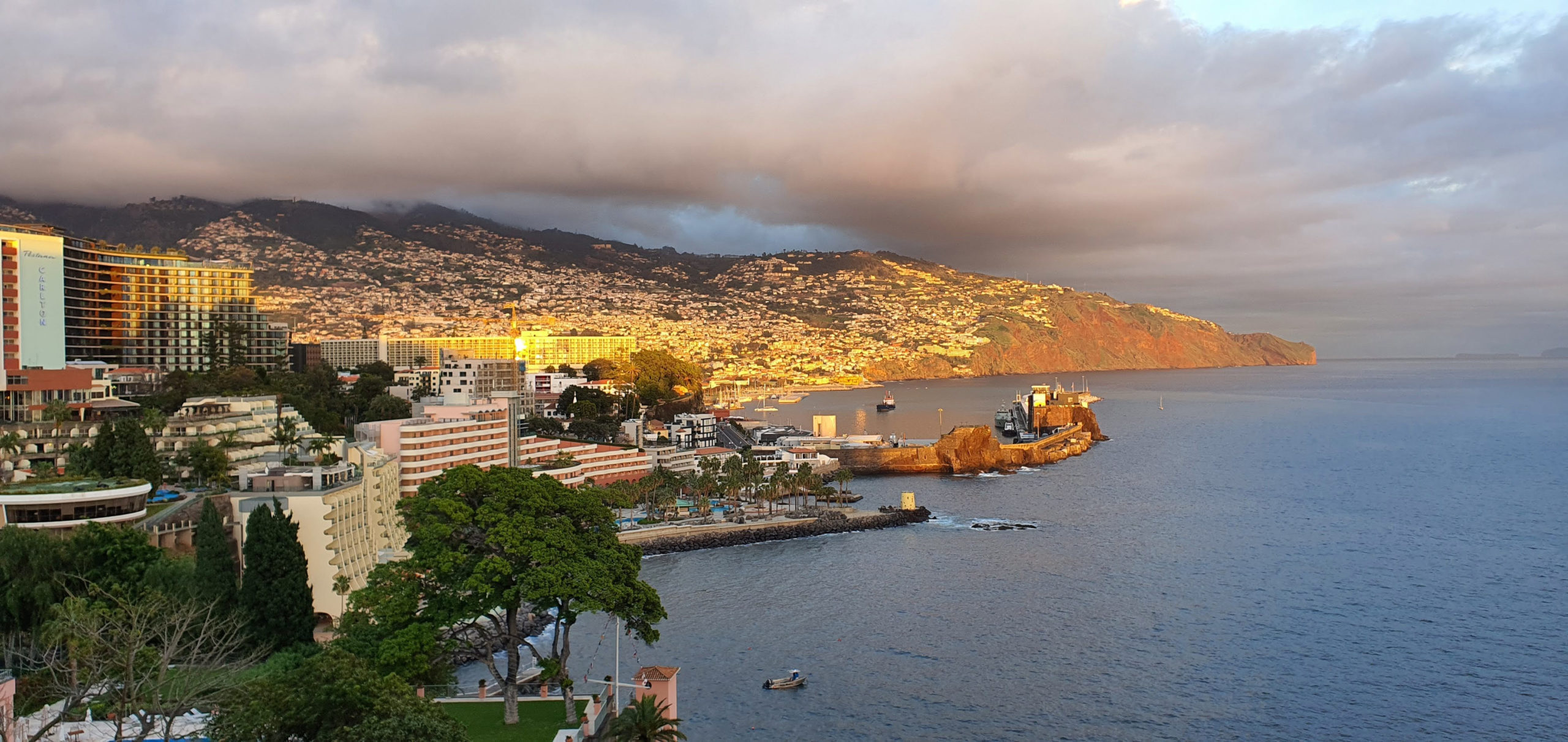
Many of the nomads hike several times a week all year round and say they have found an alternative to urban life which is very hard to beat. (Photo: John Battersby)
Other countries including Estonia, Barbados, Bermuda and Georgia offer Digital Nomad Visas but the idea thus far has been the creation of virtual rather than physical communities.
Portugal allows for the granting of visas to digital nomads without creating a special category, as Estonia and Barbados (up to 12 months) have done since August last year.
Hall said he is working with the Portuguese government in Lisbon to create a special visa for remote workers to take the project to the next level.
Urban refugees from the isolation of working remotely in a global pandemic, the latter-day nomads have been in search of Covid-light destinations with sunshine, hiking, surfing, diving and fine all-year-round weather.
“This island and its amazing weather and outdoor attractions offers a kind of freedom which I never knew existed,” said Andreas Gran, a German national who runs a lifestyle centre in Leipzig and has been in Madeira since November last year.
“Here I have the freedom to decide how and when I work,” he said.
”I have the freedom to choose where I live without being tied to a particular employer.”
Many of the nomads hike several times a week all year round and say they have found an alternative to urban life which is very hard to beat.
Tourism accounts for 20% of Madeira’s GDP compared with 14% for Estonia and 8% for Barbados – both competing to attract digital nomads.
Working remotely abroad was already a growing phenomenon before the pandemic. After the pandemic, many companies gave their staff the green light to work from anywhere in the world.
Some countries – such as Estonia – are actively promoting a new immigration product known as the Digital Nomad Visa (DNV) with a duration of between three and 12 months.
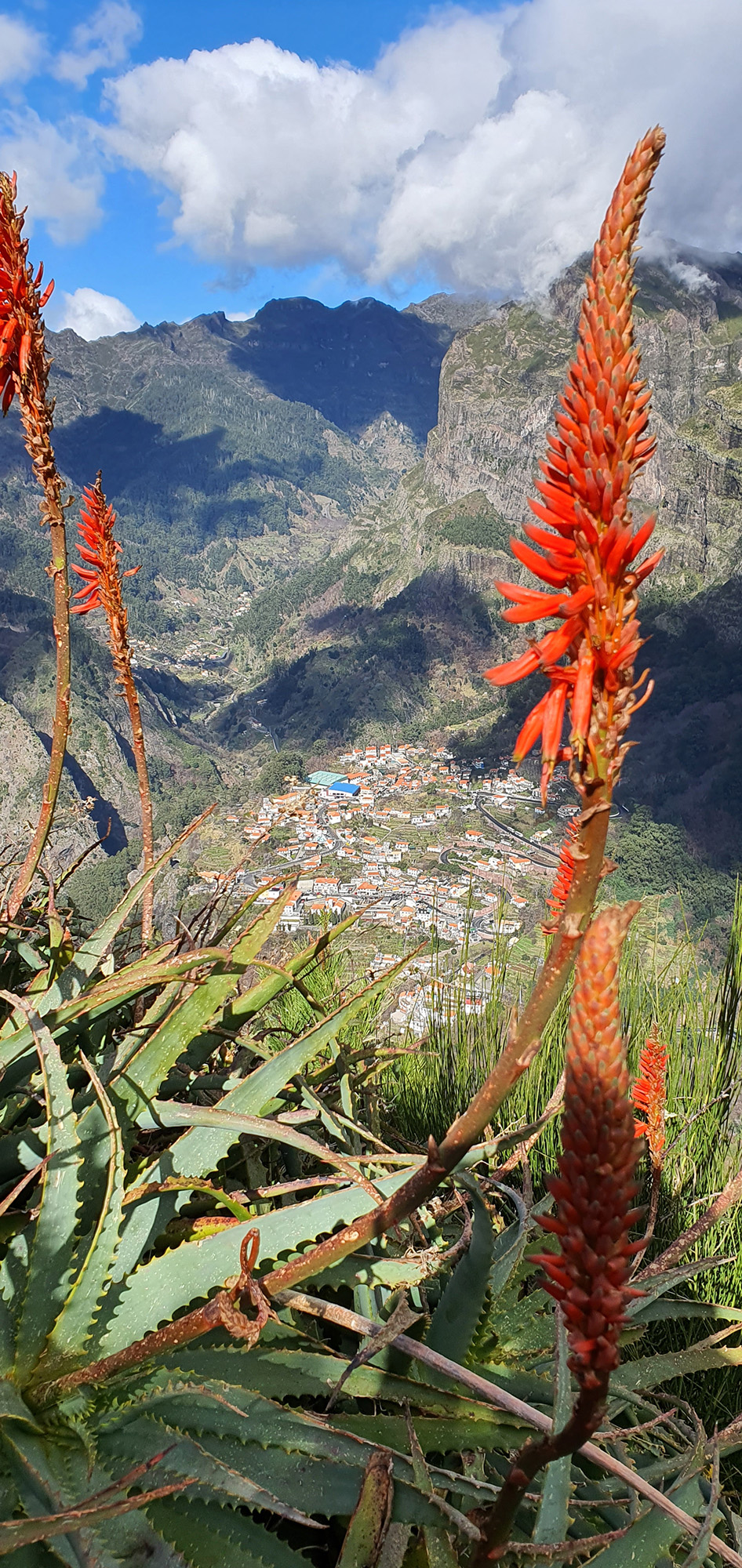
Since launching the project in early December they have had more than 2,000 registrations from people coming to work remotely from Madeira, which is an autonomous region of Portugal. (Photo: John Battersby)
All the countries offering DNVs require proof of employment by a foreign company, proof of earning and/or self-support, travel insurance and other routine documentation.
For Madeira, visas are issued at the embassies around the world subject to routine checks and proof of a minimum income of around €3,500 (R65,000) a month and a registration fee of $125 (R1,900).
Estonia requires proof of a $4,150 (R65,000) monthly income and a registration fee of $263 (R4,000).
Barbados requires proof of a monthly income of $4,167 (R64,000) and a registration fee of $2,000 (R30,000) for an individual and $3,000 (R45,000) for a family.
Bermuda requires a registration fee of $263 (R9,000) and, like Georgia, does not require a minimum income.
Lucky were the Portuguese sailors who were washed up on the shores of Madeira in 1419 after being shipwrecked in a fierce Atlantic storm. Settlers from Portugal arrived the following year.
There were no inhabitants and minimal wildlife, but millions of trees, towering mountains on all sides and enough fresh water to supply a nation 100 times its size.
Some of the trees were felled to make way for lucrative sugar plantations, which sustained the economy for two centuries.
Bananas replaced sugar as the main cash crop about a century ago and now the lower slopes are covered in banana trees and grapevines from which came sweet Madeira wine with the help of English families such as the Blandys.

Ponta do Sol is a typical Madeiran seaside village built on precipitous volcanic cliffs with some gravity-defying locations for buildings and banana plantations alike. (Photo: John Battersby)
Today Madeirans, descendants of the original Portuguese settlers, are spread worldwide.
Many of the estimated 300,000 to 500,000 Portuguese-descended residents in South Africa can trace their origins to Madeira.
The late PW Botha, a former president of apartheid South Africa, speculated when he paid a controversial visit to the island in 1986 that there could be more Madeirans in South Africa than in Madeira.
Those familiar with South Africa’s interior would have encountered Funchal cafes in many country towns.
Not many in Madeira know who PW Botha was, but they have all heard of Nelson Mandela. Eyes light up when his name is mentioned and they proudly announce the name of their own icon: Madeiran-born soccer megastar Cristiano Ronaldo.
Known as the “pearl of the Atlantic”, this rugged and staggeringly picturesque volcanic island of 250,000 people – 57km long and 23km wide – is 520km from the African coast and 1,000km from continental Europe.
It has a system of highways and tunnels through the mountains which would make Monte Carlo proud and it celebrates New Year with arguably the world’s best fireworks display launched from 38 pads in the mountains for a 360° all-round experience.
Covid-19 has made its mark on the island but the response has been orderly, rational and effective.
There have been just over 1,500 infections and 27 deaths. Strict testing at the airport, and meticulously observed mask and social distance protocols were augmented on January 13 by a 7pm to 5am curfew.
Within hours of arriving in Funchal the digital nomads connect with WhatsApp groups ranging from lawyers, accountants and tax consultants to hikers, divers and surfers, IT and digital experts.
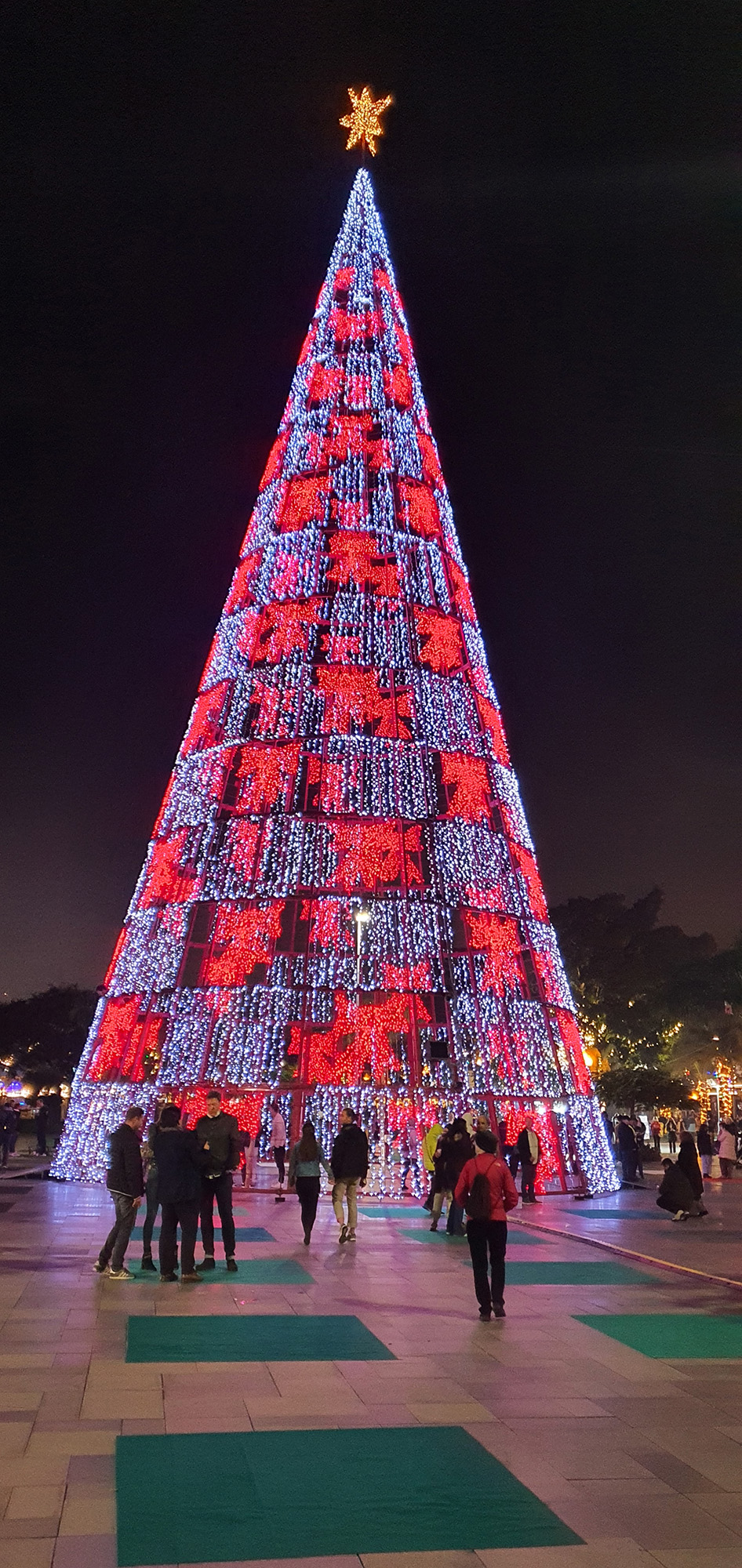
A key objective of the project is to integrate the digital nomads into the economic and social life of the town. (Photo: John Battersby)
Other countries that have recognised the category of digital nomad for immigration purposes include Germany, Costa Rica, Norway, Mexico and Czech Republic.
“I had been considering doing this nomad thing for quite a while,” said Kazuo Max, a Berlin marketing agent for a company that makes smoothies.
“Covid and then a particularly cold winter in Europe pushed me over the edge.”
So where to next?
“Probably the Canary Islands.” DM
Battersby is a veteran journalist and author who is based in the United Kingdom. He is currently visiting Madeira.

















 Become an Insider
Become an Insider
Comments - Please login in order to comment.